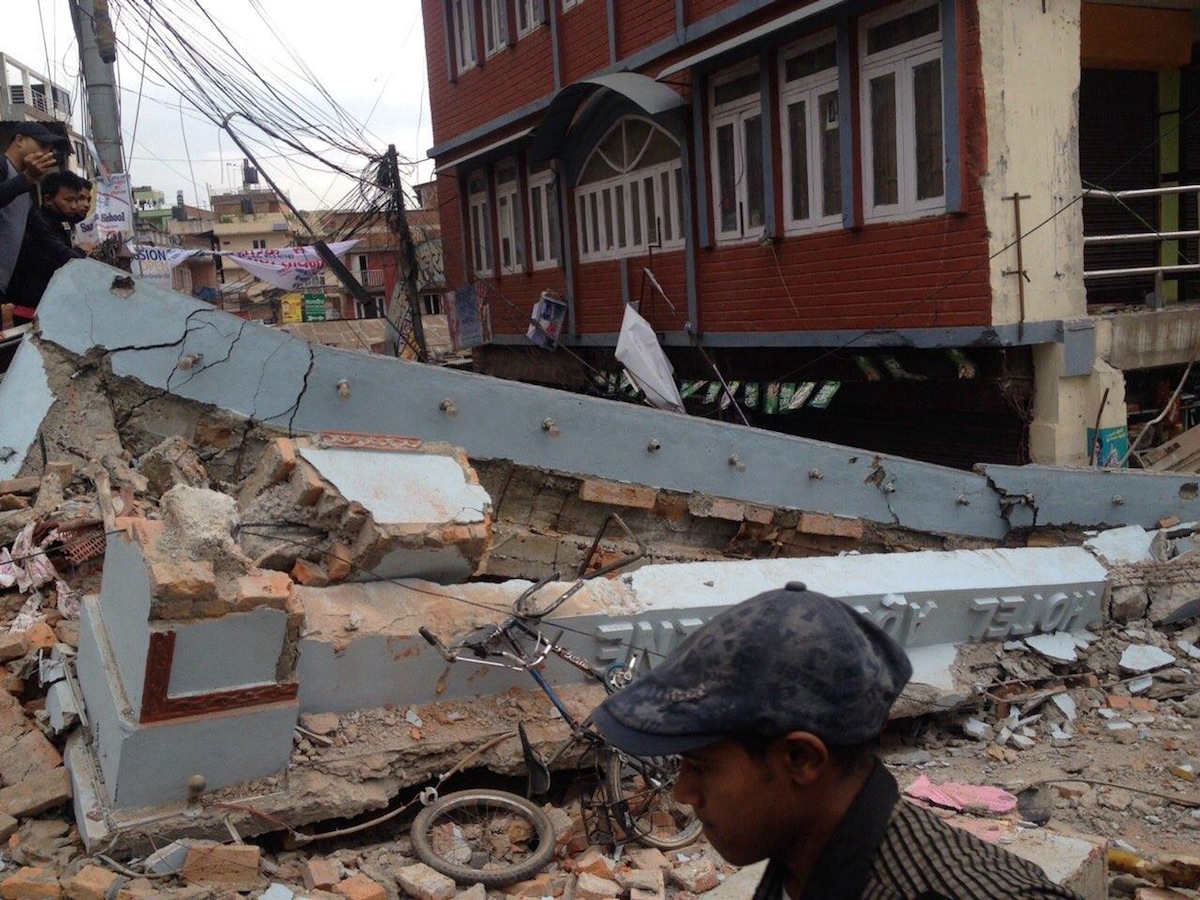The author of Nepal’s building code says the earthquake that killed more than 4,300 people and caused at least $2 billion in economic losses could have been less destructive if the code had been properly implemented and enforced.
The tragedy was predictable given the conditions of the nation’s building stock. “It was inevitable, absolutely inevitable,” Richard Sharpe told Bloomberg Business. Sharpe is a New Zealand earthquake engineer who led a team that formulated Nepal’s only set of building standards 20 years ago.
The earthquake struck during a period following a decade-long Maoist guerrilla war that preceded years of political struggles following the removal of a 240-year-old monarchy in 2008. The unrest made code implementation and enforcement much more difficult.
What’s more, the capital of Kathmandu has expanded to an old lake bed south of the city— an area that is unstable and susceptible to liquefaction—in recent years. Buildings have not been designed to cope with those conditions.
Related Stories
Codes and Standards | Jan 15, 2020
Trump Administration blocks new light bulb efficiency standards
Move defies bipartisan 2007 law.
Codes and Standards | Jan 14, 2020
L.A.’s expedited permitting process credited with faster approvals on $1 billion project
Parallel Design-Permitting Process includes flagging elements for correction during conceptual design.
Codes and Standards | Jan 13, 2020
Kansas City is first in nation to offer free public transportation
Aim is to increase mobility to spur more economic activity.
Codes and Standards | Jan 9, 2020
Dept. of Defense will require beefed up cybersecurity standards in January
All contractors will have to demonstrate secure practices.
Codes and Standards | Jan 8, 2020
2019 Oregon Zero Energy Ready commercial code will boost efficiency by 14%
ASHRAE 90.1 is the basis for new code that went into effect Oct. 1.
Codes and Standards | Jan 8, 2020
Energy efficiency initiatives have significantly cut energy consumption per square foot
Lighting and space heating fell by more than 600 trillion Btu from 2003 to 2012.
Building Technology | Jan 7, 2020
Tariff whiplash for bifacial solar modules
Bifacial solar systems offer many advantages over traditional systems.
Codes and Standards | Jan 7, 2020
New certification program for rigid core luxury vinyl tile
ASSURE CERTIFIED to establish industry-wide quality standards.
Codes and Standards | Jan 7, 2020
Boston’s beefed up wetlands ordinance will limit development
Conservation commission must consider future climate impacts when assessing new projects.
Codes and Standards | Jan 6, 2020
States pick up the slack in efficiency policy as federal government lags
With climate change deniers setting policy in Trump Administration, progress continues in statehouses.

















